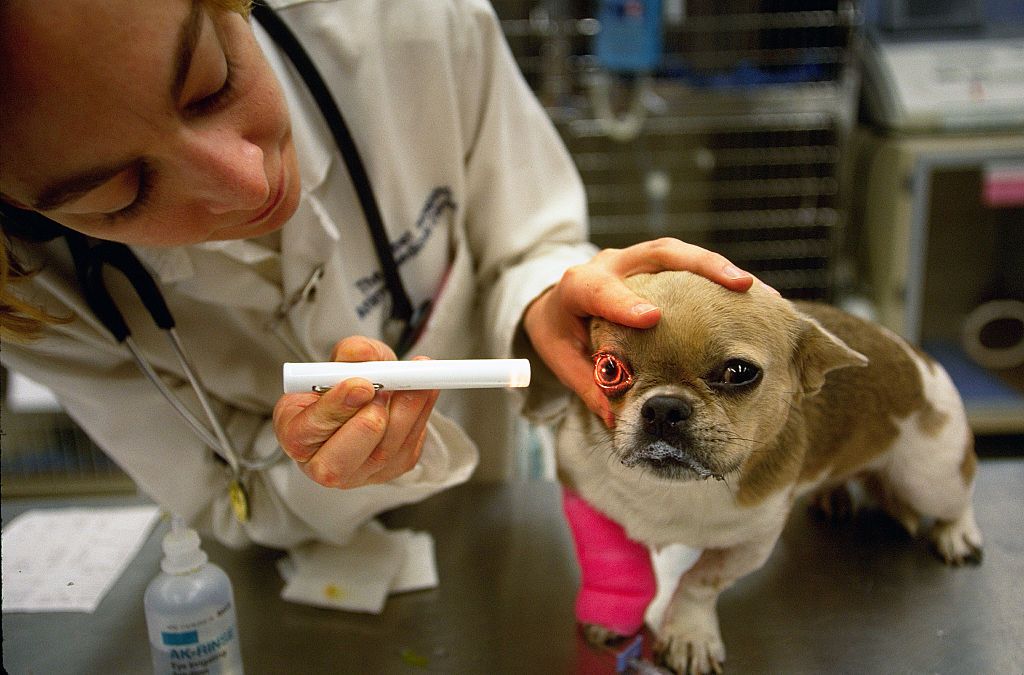Introduction: Dealing with the Heartbreak of a Dog Getting Hit by a Car
It’s a nightmare no pet owner ever wants to experience – the gut-wrenching moment when you realize your beloved furry companion has been hit by a car. The sheer panic, the overwhelming sense of grief, and the uncertainty of what to do next can leave you feeling utterly devastated. As someone who has gone through this harrowing ordeal, I know firsthand the emotional turmoil and the challenges that come with navigating this unimaginable situation.
In this article, I’ll share my personal journey and the lessons I’ve learned about coping with the heartbreak of losing a dog in such a tragic way. From understanding the range of emotions to seeking professional veterinary care and finding ways to honor your pet’s memory, I hope to provide a comprehensive guide to help you through this difficult time.
READ ALSO : Mastering the Art of Dog Training: Unleashing the Power of “Follow My Lead”
Understanding the Emotions: Coping with the Shock and Grief
When your dog is hit by a car, the initial reaction is often one of pure shock and disbelief. It’s as if the world has suddenly stopped spinning, and you find yourself in a state of utter confusion and panic. The sight of your beloved companion lying injured or lifeless can be truly devastating, and the emotions that follow can be overwhelming.
Grief is a natural response to the loss of a pet, and it’s important to acknowledge and allow yourself to feel the full range of emotions. Anger, guilt, sadness, and even feelings of guilt can all surface, and it’s crucial to give yourself the time and space to process them. Remember, there is no right or wrong way to grieve, and the journey is unique to each individual.
Seeking support from loved ones, joining pet Hit by a Car loss support groups, or even speaking with a mental health professional can be invaluable during this time. Sharing your thoughts and feelings with those who understand can help you navigate the emotional turmoil and find ways to cope.
Immediate Steps to Take: What to Do If Your Dog Gets Hit by a Car
If the unthinkable happens and your dog is hit by a car, the first and most crucial step is to remain calm and take immediate action. Here’s what you should do:
- Assess the situation: Quickly evaluate the extent of your dog’s Hit by a Car
- injuries and their level of consciousness. If they are responsive, try to keep them still and calm until emergency assistance arrives.
- Call for help: Immediately contact your veterinarian or the nearest emergency animal hospital. Provide them with the details of the incident and your dog’s Hit by a Car condition.
- Administer first aid (if possible): If you have basic first aid knowledge and the necessary supplies, you can attempt to provide basic care, such as controlling bleeding or immobilizing any suspected fractures.
- Transport your dog safely: If your dog Hit by a Car is stable and can be moved, carefully transport them to the nearest veterinary clinic or emergency hospital. Avoid moving them if you suspect spinal or other serious injuries.
- Gather important information: Have your dog’s Hit by a Car medical records, contact information, and any relevant details about the incident ready to share with the veterinary team.
Remember, time is of the essence, so act quickly and remain as calm as possible. The veterinary professionals will be able to provide the necessary medical care and guide you through the next steps.
Seeking Veterinary Care: Importance of Professional Help
When your dog Hit by a Car has been hit by a car, seeking immediate and professional veterinary care is of utmost importance. The veterinary team will be equipped to assess the extent of your dog’s injuries, provide emergency treatment, and develop a comprehensive plan for their recovery.
Upon arrival at the veterinary clinic, your dog Hit by a Car will undergo a thorough physical examination and diagnostic tests, such as X-rays or CT scans, to determine the nature and severity of their injuries. The veterinary team will then work diligently to stabilize your dog’s condition, address any life-threatening issues, and develop a treatment plan tailored to their specific needs.
Depending on the severity of the injuries, your dog Hit by a Car may require hospitalization, surgery, or ongoing medical care. The veterinary staff will keep you informed every step of the way, answering your questions and guiding you through the process. It’s crucial to follow their instructions and recommendations to ensure your dog receives the best possible care.
Remember, the veterinary team is there to support you and your pet Hit by a Car during this challenging time. Don’t hesitate to ask questions, express your concerns, or advocate for your dog’s Hit by a Car wellbeing. Their expertise and compassionate care can make all the difference in your dog’s recovery.
Emotional Support for Yourself: Dealing with Guilt and Sadness
Losing a pet in such a tragic way can be an emotionally overwhelming experience, and it’s important to acknowledge and address the complex emotions you may be feeling. Guilt, sadness, and even feelings of self-blame are common reactions, and it’s crucial to be kind to yourself during this difficult time.
It’s natural to question whether you could have done something differently to prevent the accident, but it’s essential to remember that these incidents are often unpredictable and beyond our control. Avoid dwelling on “what-ifs” and instead focus on the love and care you provided your pet throughout their life.
Seek out support from family, friends, or pet Hit by a Car loss support groups. Sharing your feelings with those who understand can help you process the grief and find comfort in the shared experience. Consider seeking the guidance of a mental health professional, such as a therapist or counselor, who can provide professional support and help you develop healthy coping strategies.
Remember, the grief you’re experiencing is a testament to the depth of your love for your pet. Allow yourself to feel the emotions, but also make time for self-care activities that bring you comfort and solace. Engaging in activities you enjoy, practicing mindfulness, or simply allowing yourself to cry can all be helpful in the healing process.
Coping Strategies: Helping Yourself and Your Family Through the Process
Navigating the aftermath of a tragic pet loss can be challenging, not only for you but for your entire family. It’s important to recognize that everyone may be processing the grief in their own way, and it’s crucial to support one another during this difficult time.

Encourage open communication within your family, allowing each member to express their feelings and emotions. Consider holding a family meeting or creating a space for everyone to share their memories and honor your pet’s life. This can help foster a sense of unity and provide an opportunity for shared healing.
Engage in activities that can help you and your family find comfort and closure. This could include creating a memorial, such as a photo album or a special resting place for your pet, or participating in a pet-friendly memorial service or candlelight vigil. These rituals can help provide a sense of closure and commemorate the life of your beloved companion.
It’s also important to maintain a sense of routine and normalcy, as much as possible, to provide stability and a sense of security for your family. Engage in activities that bring you joy, such as going for walks, playing with other pets, or spending quality time together.
Remember, the grieving process is not linear, and there may be good days and bad days. Be patient with yourself and your family, and don’t hesitate to seek additional support if needed.
Talking to Children About the Incident: Explaining the Situation in an Age-Appropriate Manner
When a pet is lost in a tragic incident, it can be especially challenging to explain the situation to children. It’s important to approach the conversation with sensitivity, honesty, and age-appropriate language.
Start by acknowledging their feelings and letting them know that it’s okay to feel sad, angry, or confused. Encourage them to express their emotions and provide a safe space for them to do so.
Depending on the child’s age, you can provide a simple, factual explanation of what happened, focusing on the positive memories and the love you shared with your pet. Avoid going into graphic details, and be prepared to answer any questions they may have.
Reassure them that the accident was not their fault and that there was nothing they could have done to prevent it. Emphasize that you and your family are there to support them through this difficult time.
Consider involving your children in the grieving process, such as creating a memorial, writing a letter to your pet, or sharing stories and memories. This can help them feel included and provide a sense of closure.
If your child is struggling with the loss, don’t hesitate to seek the guidance of a mental health professional, such as a child therapist or counselor. They can provide specialized support and help your child navigate the grieving process in a healthy and constructive way.
Creating a Safe Environment: Preventing Future Accidents
After the heartbreaking experience of your dog being hit by a car, it’s natural to want to ensure that such a tragedy never happens again. Taking proactive steps to create a safe environment for your pet can provide a sense of control and help prevent future accidents.
Start by carefully reviewing your home and neighborhood for potential hazards. Identify areas where your dog Hit by a Car may be at risk of escaping or wandering into the street, and take measures to secure them, such as installing fencing, gates, or additional locks.
Consider investing in a microchip or a GPS-enabled collar for your dog, which can greatly improve the chances of reuniting them with you if they ever do get loose. Additionally, ensure that your dog Hit by a Car is properly trained and responsive to basic commands, as this can help you maintain control in potentially dangerous situations.
Educate your family and neighbors about the importance of being vigilant and cautious when driving in areas where pets may be present. Encourage everyone to slow down, be alert, and report any stray or loose animals to the appropriate authorities.
Remember, creating a safe environment is an ongoing process, and it’s important to remain vigilant and continually assess any potential risks. By taking these proactive steps, you can find some solace in knowing that you’re doing everything in your power to prevent such a heartbreaking incident from happening again.
Remembering Your Beloved Pet: Honoring Their Memory
As you navigate the grief and heartbreak of losing your dog Hit by a Car, it’s important to find ways to honor their memory and celebrate the life they lived. This can provide a sense of comfort and closure, and help you cherish the positive impact they had on your life.
Consider creating a memorial, such as a special resting place in your backyard, a framed photo, or a memory box filled with their favorite toys and mementos. You can also plant a tree or a garden in their honor, creating a living tribute that will continue to grow and thrive.
Sharing stories and memories with loved ones can also be a powerful way to keep your pet’s spirit alive. Compile a scrapbook or photo album that showcases the joyful moments you shared, and don’t hesitate to talk about your beloved companion with those who understand.
If you feel called to do so, you can also consider making a donation to a local animal shelter or rescue organization in your pet’s name. This can be a meaningful way to honor their legacy and help other animals in need.
Remember, there is no right or wrong way to memorialize your pet Hit by a Car. The most important thing is to find ways that feel authentic and comforting to you and your family.
Conclusion: Finding Healing and Moving Forward
The loss of a beloved pet, especially in such a tragic way, can be a profoundly difficult experience. However, with time, support, and a willingness to honor your pet’s memory, it is possible to find healing and move forward.
Remember to be patient with yourself and your family as you navigate the grieving process. Seek out the resources and support you need, whether it’s from loved ones, pet loss support groups, or mental health professionals. Engage in activities that bring you comfort and solace, and find ways to celebrate the life of your cherished companion.
As you move forward, know that the love and joy your pet brought into your life will continue to live on. Their memory will serve as a reminder of the profound impact they had on your world, and the lessons they taught you about unconditional love, resilience, and the true meaning of companionship.If you or someone you know is struggling with the loss of a pet, please don’t hesitate to reach out for support. There are numerous pet loss hotlines, support groups, and resources available to help you through this challenging time. Remember, you are not alone, and with time and compassionate care, the healing process can begin.


